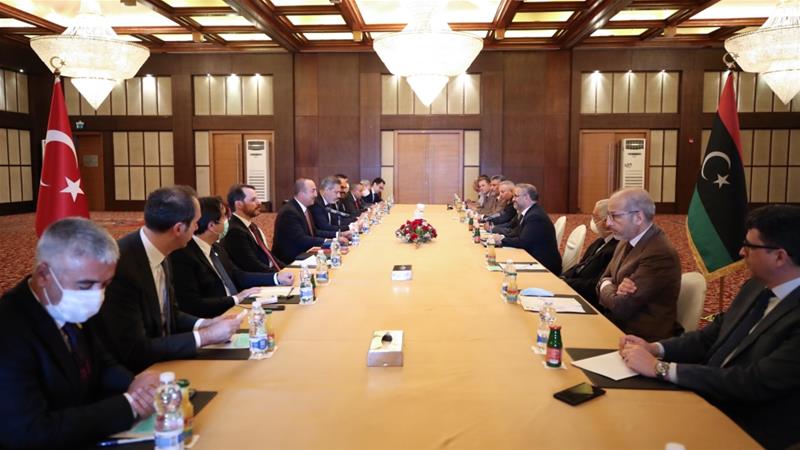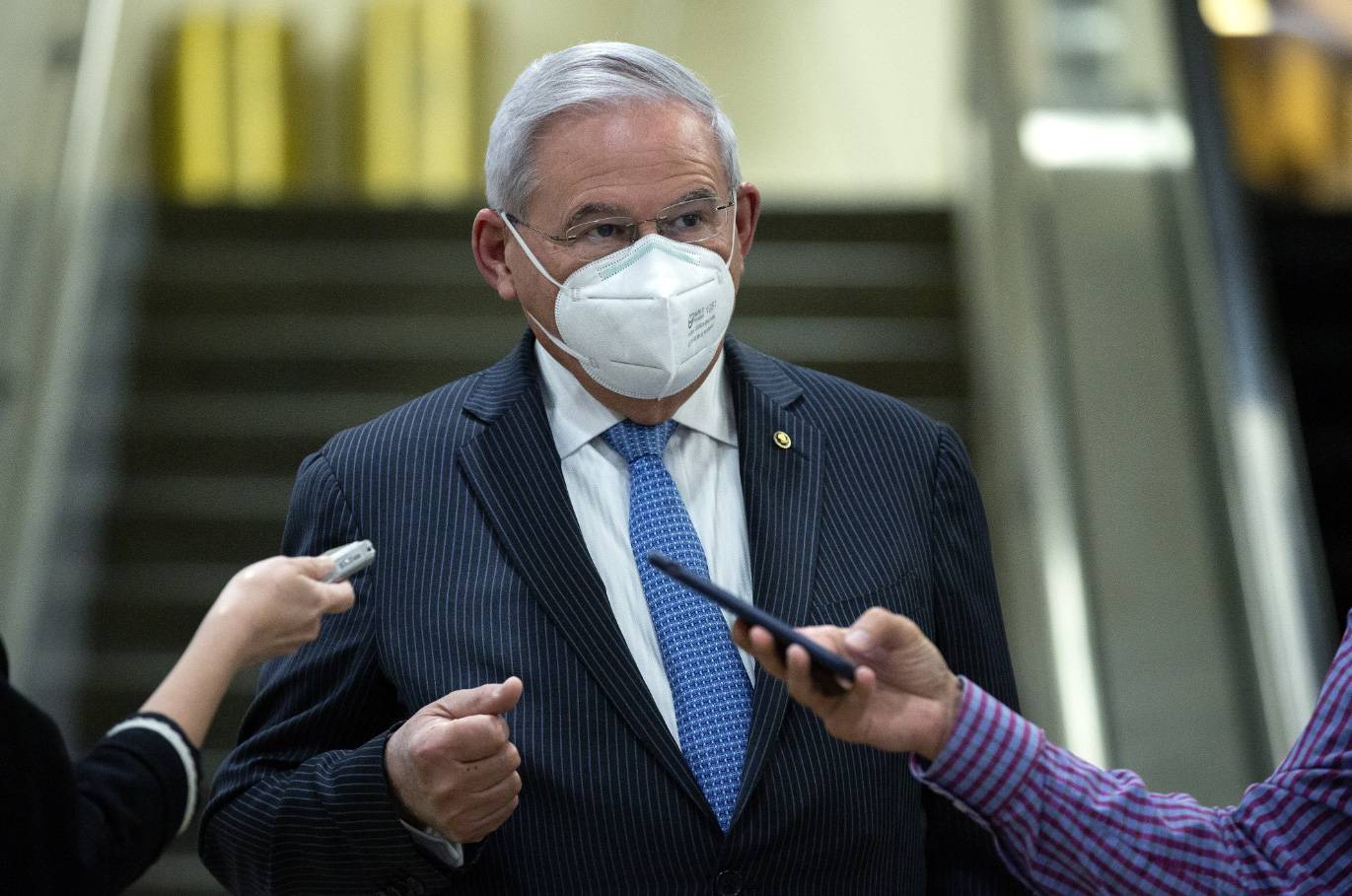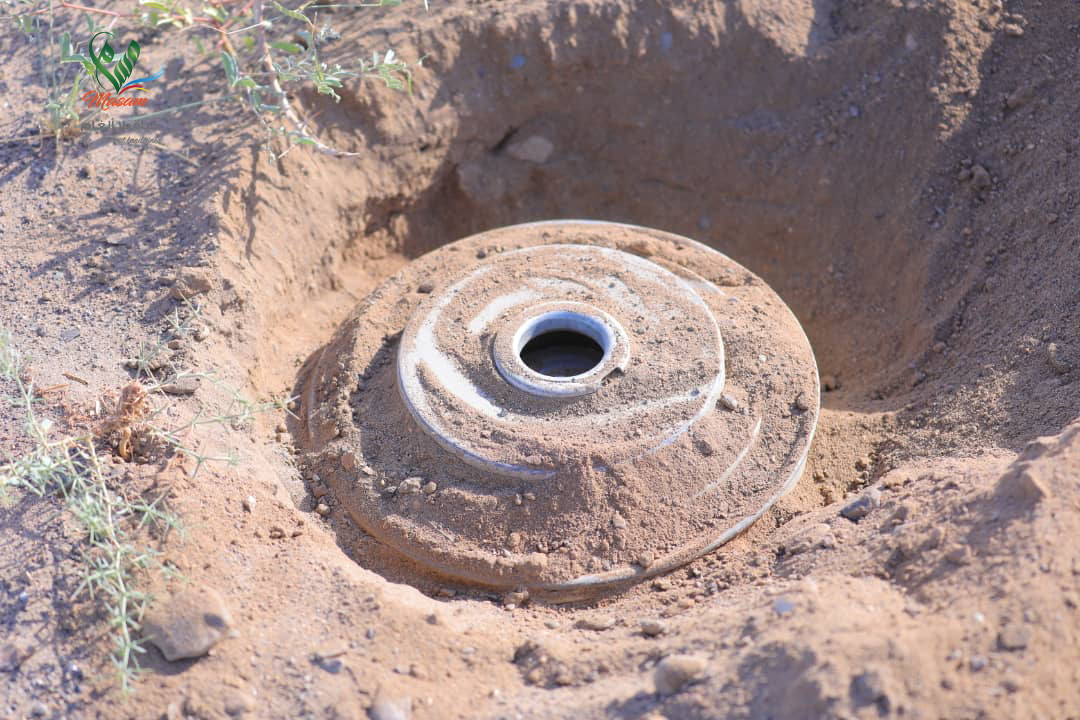On Wednesday, June 17, Prime Minister Fayez-Sarraj of Libya’s Government of National Accord (GNA) met with high-level representatives from Turkey in Tripoli. The group was the most significant delegation to visit the country since rebel commander Khalifa Haftar launched his offensive on Tripoli in April 2019.
The Turkish delegation included Foreign Minister Mevlut Cavusoglu, Minister of Treasury and Finance Berat Albayrak, and Turkish Chief of Intelligence Hakan Fidan. Libyan officials in attendance included Minister of Foreign Affairs Mohamed Siala, the Minister of Interior, Fathi Bashaga, and the Minister of Finance, Faraj Atmari.
The meeting comes after a period of increased cooperation between the two governments with Turkey seeking to re-establish access to the Libyan market for Turkish businesses. Prior to the conflict in Libya, Turkish companies were dominant in the construction sector. The delegation is reported to have discussed cooperation in banking, infrastructure, and oil.
One Turkish official suggested that the two countries could cooperate “on every imaginable project.” Turkey’s support for the GNA and aggressive moves to secure contracts for Turkish companies in post-conflict Libya are a source of concern for Libya’s neighbors. The populations of Tunisia and Egypt are particularly dependent on Libya for employment opportunities and cross-border trade.
Turkish military support
Turkey has provided significant support to the GNA including supplying them with arms, in contravention of the United Nations arms embargo, and providing Syrian mercenaries. International observers believe thousands of mercenaries, paid $1,500 per month, are in the country and fighting alongside GNA forces.
In a further sign of the growing closeness between Tripoli and Ankara, Libya Review reports that the GNA has deposited $4 billion in the Central Bank of Turkey with a further $8 billion paid for Turkey’s recent intervention in Libya.
In addition to the Syrian mercenaries, Turkey has sent 70 Turkish UAV drones to Libya, which cost over $5 million per unit, and hundreds of armored vehicles (KIRPI).
Conflict continues
Turkey may be looking to a post-conflict Libya but the conflict, which has been ongoing since the NATO-backed toppling of Muamar Ghaddafi in 2011, continues.
Earlier this month, the GNA was successful in repelling Haftar’s forces from Tripoli after over a year of fighting. Securing the capital was an important victory for the GNA. However, General Haftar’s forces maintained control over much of Libya including the majority of the country’s oil fields.
The defeat comes amid unconfirmed reports the Russian Wagner Group mercenaries who previously fought alongside Haftar’s forces evacuated from Libya in May.
On Saturday, Egyptian President Abdel Fattah el-Sisi warned of “direct intervention” from Cairo should the GNA’s forces advance on the town of Sirte and instructed the Egyptian military to be ready to carry out operations. Sirte provides strategic access to the Haftar-controlled oil fields. Egypt, along with Russia and the United Arab Emirates, supports General Haftar’s forces.
Libya responded to el-Sisi’s warnings in a statement that likened his comments to a declaration of war.





